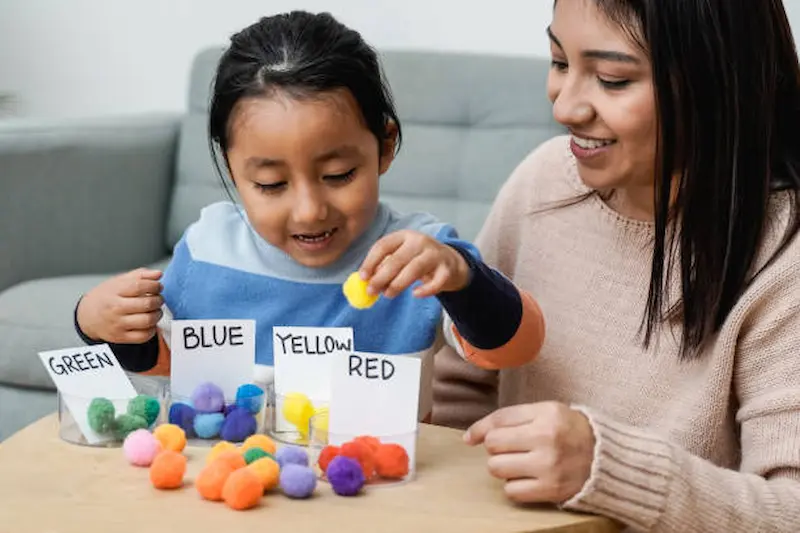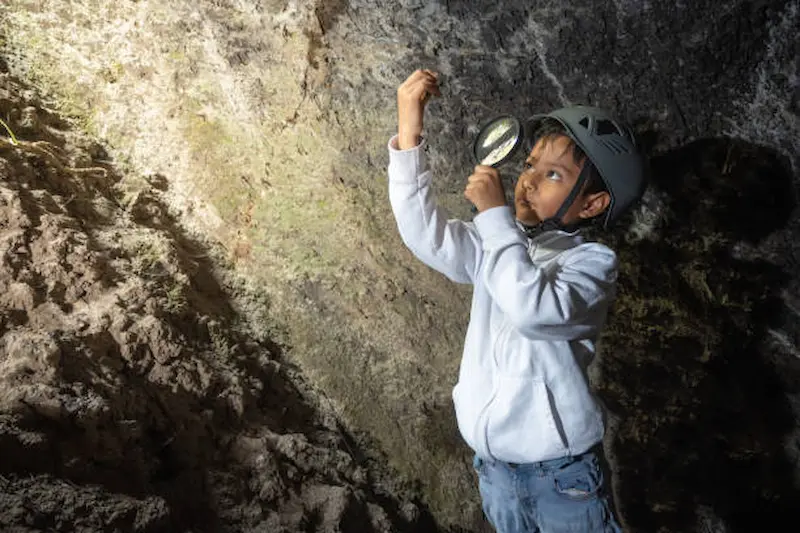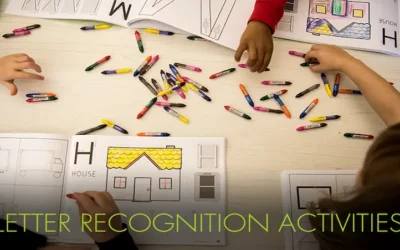Interactive educational games encourage critical thinking and knowledge retention by making learning fun and successful. In today’s classroom, interactive instructional games are essential. They improve learning by making it interesting and fun, encouraging knowledge retention, critical thinking, and problem-solving. With the help of these engaging games, students may apply abstract ideas to real-world situations, developing a deeper comprehension of the material.
Interactive educational games cater to students throughout all age groups, from early childhood to post-secondary education. These games are useful and accessible for a broad range of learners, whether in traditional classrooms or online learning environments, because they can be customised to match the unique requirements of different grade levels.
In this blog, we delve into the world of “Interactive Educational Games,” exploring their role in making learning enjoyable, engaging, and effective for students of all ages.
Table of contents
- Game 1: “Math Mania”
- Game 2: “Word Wizards”
- Game 3: “Science Sleuths”
- Game 4: “History Heroes”
- Game 5: “Geography Explorers”
- Game 6: “Language Land”
- Comparative Analysis of Games
- Gamification in Education
- Interactive Game Development
- Measuring Impact
- Overcoming Potential Challenges
- Parent and Teacher Involvement
- Conclusion
- Frequently Asked Questions ( FAQs )
Game 1: “Math Mania”

“Math Mania” is an engaging and interactive math game designed for elementary students, making it an ideal choice among math games for kids. This game encourages the practice of basic arithmetic skills, including addition, subtraction, multiplication, and division. It offers an exciting and visually appealing virtual environment where students can apply their math knowledge while having fun.
- Learning Objectives: The game aims to reinforce fundamental math concepts, enhance mental math skills, and promote quick and accurate calculations. It helps students become more confident and proficient in solving math problems.
- How to Play: Students select a character and navigate through maths challenges by solving equations within a time limit. Correct answers earn points and progress through levels.
- Benefits for Students: “Math Mania” not only makes maths enjoyable but also fosters problem-solving, concentration, and critical thinking. It enhances students’ math fluency, increasing their maths proficiency and confidence in a fun and interactive way.
Game 2: “Word Wizards”

“Word Wizards” is an instructional word game for students in middle and high school, offering a captivating option among word search for kids. It transports users to an enthralling virtual world where they can improve their vocabulary, spelling, and language skills. The game provides an engaging environment full of word puzzles, anagrams, and word connections, making language learning fun and interactive.
- Learning Objectives: “Word Wizards” focuses on increasing pupils’ vocabulary, spelling, and developing a deeper knowledge of language. As players decipher complex word challenges, it promotes critical thinking and problem solving.
- How to Play: Students select an avatar and journey through a mystical realm by solving word puzzles, unscrambling anagrams, and generating word associations. Correct responses unlock higher levels and more difficult wordplay.
- Benefits for Students: “Word Wizards” not only enhances language skills but also cultivates a love for words and language. It boosts vocabulary, spelling, and linguistic comprehension, fostering improved communication and critical thinking skills in an entertaining and educational setting.
Game 3: “Science Sleuths”

“Science Sleuths” is an interactive science game for kids in middle and high school, providing an immersive experience comparable to engaging science kits for kids. In this virtual environment, gamers take on the role of detectives, solving scientific riddles. Through an engaging and problem-solving adventure, they investigate numerous scientific ideas, ranging from chemistry to biology.
- Learning Objectives: The game is intended to promote critical thinking, scientific inquiry, and a better knowledge of scientific ideas. It helps students to apply their knowledge in real-world situations and improves their problem-solving abilities.
- How to Play: Students take on the role of a science sleuth, investigating mysteries using the scientific method. To solve the cases, they gather evidence, conduct tests, and solve puzzles.
- Benefits for Students: “Science Sleuths” not only makes science engaging but also promotes scientific literacy, critical thinking, and problem-solving abilities. It encourages students to become more proficient in applying scientific knowledge to real-world situations, preparing them for future scientific endeavours.
Game 4: “History Heroes”

“History Heroes” is an educational history game designed for middle and high school students. Players take on the roles of historical figures, navigating through pivotal moments in history. The game provides an immersive experience, allowing students to explore different time periods and make historical decisions.
- Learning Objectives: The game is structured to enhance students’ understanding of historical events, critical thinking, and decision-making. It encourages students to think like historical figures, analyse historical context, and grasp the consequences of their choices.
- How to Play: Students select a historical character and navigate through various scenarios, making decisions that impact the course of history. They explore alternative outcomes and learn from their historical choices.
- Benefits for Students: “History Heroes” not only makes history engaging but also promotes critical thinking, historical empathy, and a deeper understanding of historical events. It encourages students to actively engage with history and fosters an appreciation for the complexities and lessons of the past.
Game 5: “Geography Explorers”

“Geography Explorers” is an educational geography game designed for elementary and middle school students, incorporating elements reminiscent of quizzes for kids and puzzles for kids. It takes players on a virtual journey around the world, challenging them with geography-related puzzles and quizzes. The game offers an immersive and interactive way to explore the diverse cultures, landmarks, and regions of our planet.
- Learning Objectives: The game’s primary focus is to enhance students’ geographical knowledge, including countries, capitals, landmarks, and world geography. It also aims to promote global awareness and an appreciation for the world’s diversity.
- How to Play: Players select their virtual explorer character and embark on adventures to various geographical locations. They answer geography questions, complete challenges, and unlock new regions.
- Benefits for Students: “Geography Explorers” not only makes learning about the world fun but also boosts geographical literacy, cultural understanding, and map-reading skills. It cultivates an interest in global issues and geography, fostering a broader perspective on the world and its interconnectedness.
Game 6: “Language Land”
“Language Land” is an immersive language learning game suitable for students of various ages, akin to the interactive and engaging nature of card games for kids. In this virtual realm, players explore diverse linguistic landscapes and embark on adventures to enhance their language skills. The game incorporates vocabulary quizzes, language puzzles, and interactive conversations, providing an enriching language-learning experience.
- Learning Objectives: The game focuses on improving language proficiency, vocabulary expansion, and comprehension. It encourages players to practice listening, speaking, reading, and writing in different languages, making it an ideal tool for language learners.
- How to Play: Players choose their language avatar and navigate through interactive dialogues, quizzes, and challenges that reinforce language skills.
- Benefits for Students: “Language Land” not only aids language acquisition but also fosters cultural understanding and effective communication. It enhances language skills in an enjoyable and interactive way, preparing students for real-world language use and promoting multilingualism.
Comparative Analysis of Games
A comparative analysis of “Math Mania” and “Word Wizards” reveals their distinct educational benefits, with “Math Mania” focusing on arithmetic skills and “Word Wizards” sharpening vocabulary and language skills, incorporating elements akin to memory games for kids. The comparison highlights the importance of offering a variety of educational games to cater to different learning objectives and preferences. This diversity enriches students’ overall learning experiences and skill sets
Gamification in Education

A. Importance: Gamification is crucial in education, particularly with the incorporation of learning games for kids, as it transforms traditional learning into an interactive, engaging experience. It harnesses the inherent motivation in games to make education more enjoyable and effective, capturing students’ interest and fostering active participation.
B. Benefits: Gamification enhances student motivation, boosts retention, and encourages problem-solving and critical thinking. It also promotes competition, collaboration, and a sense of achievement, creating a more immersive and enjoyable learning environment.
C. Challenges: Implementing gamification requires careful design to balance fun and learning. It can be time-consuming to develop educational games and align them with curriculum objectives. Ensuring accessibility and inclusivity for all students is also a challenge.
Interactive Game Development
Interactive game development involves creating educational games that engage and instruct learners, incorporating elements such as typing games for kids. It blends entertainment with educational content, fostering active participation and knowledge retention. Developing interactive games demands a multidisciplinary approach, including instructional design, graphics, programming, and pedagogical expertise.
These games can range from simple online quizzes to complex simulations, serving as effective tools to make learning enjoyable, interactive, and more memorable for students of all ages, providing a diverse and engaging learning experience.
Measuring Impact
Assessing the impact of interactive educational games, particularly educational games for kids, is vital for educators and policymakers. Various metrics can be used, such as tracking student progress, performance data, and engagement levels. Surveys and feedback from both students and teachers provide valuable insights. Ultimately, the impact can be measured through improved learning outcomes, increased motivation, and the development of critical thinking and problem-solving skills, highlighting the significant role interactive educational games play in enhancing the educational experience.
Overcoming Potential Challenges

In education, challenges are inevitable, but strategies for overcoming them are essential, contributing to the development of good habits for kids. Potential challenges like diverse learning needs, classroom management, and evolving technology require proactive solutions. Teachers can address these by adopting differentiated instruction, implementing effective behavior management techniques, and staying updated with the latest educational technology trends. Collaborating with colleagues, seeking professional development, and embracing a growth mindset are key approaches to surmounting challenges and ensuring a successful learning environment for all students.
Parent and Teacher Involvement
Parent and teacher involvement is a critical factor in a student’s educational journey and is influenced by the parenting style at home. Collaboration between parents and educators supports a holistic approach to learning. Regular communication, parent-teacher conferences, and shared educational goals can enhance a child’s academic success. Teachers benefit from parental insights, while parents gain a better understanding of their child’s progress.
Together, they create a supportive environment that nurtures students and their overall development. The alignment of parenting styles and educational strategies ensures a more comprehensive and effective approach to a child’s growth and learning.
Conclusion
Interactive educational games are digital or physical activities designed for learning, incorporating elements of fun and engagement to teach various subjects or skills. They offer benefits such as increased student motivation, improved retention, development of problem-solving and critical thinking skills, and the opportunity for hands-on, experiential learning, making them an effective tool for educators to enhance the learning experience.
To get your hands on more such articles, educational content, and free resources on coding for kids, robotics courses, game development, etc., check out the BrightCHAMPS Blog Page now!
Frequently Asked Questions ( FAQs )
A1. Educational games can be effective in enhancing learning by engaging students, promoting critical thinking, and reinforcing key concepts.
Q2. How can parents support their children’s learning through games?
A2. Parents can support their children’s learning through games by selecting age-appropriate educational games, participating in gameplay, and encouraging a healthy balance of gaming and other activities.
Q3. Are these games available on various platforms?
A3. Yes, educational games are available on various platforms, including computers, tablets, smartphones, and gaming consoles, making them accessible to a wide audience.
Q4. How do you measure the impact of educational games?
A4. The impact of educational games can be measured through assessments, student performance, and feedback to gauge their effectiveness in achieving educational objectives.


 We are an army of educators and passionate learners from BrightChamps family, committed to providing free learning resources to kids, parents & students.
We are an army of educators and passionate learners from BrightChamps family, committed to providing free learning resources to kids, parents & students.
























